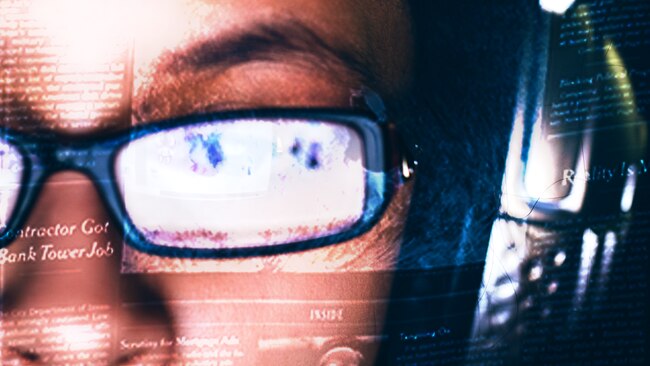Illiterate teenagers more at risk of fake news
Close to 1m Australian students have substandard literacy levels making them 'vulnerable to targeted misinformation attacks'.

Close to 1m Australian students have substandard literacy levels making them 'vulnerable to targeted misinformation attacks'.
Declining literacy levels in classrooms mean students could be more susceptible to online misinformation, researchers say.
Since 2003, Australian students have slid from fourth to 16th in literacy compared to students from 75 other industrialised countries, analysis of the OECD's Program for International Student Assessment (PISA) shows.
Based on the latest PISA in 2018, Learning First chief executive Ben Jensen calculated 800,000 Australian students have substandard literacy, which would soar in the next five years unless they were given help with reading and writing.
Top media literacy researcher Tanya Notley said there was "definitely a continuum of traditional literacy with media literacy".
"A low level of literacy reduces opportunities and chances in life and does make you more vulnerable to targeted misinformation attacks for example," she told The Oz.
Working as an associate professor at UWS, Notley undertook a large survey in 2020 on how young people perceive news media and found just 36% believed they could tell fake from real news stories, up 2% from 2017.
She said this was "much lower than we would hope". Dr Notley did not expect the figures to improve when they conduct the study again in 2023, especially since the "demands are always evolving as media techniques develop".
"We were so surprised the figure hadn’t changed from 2017 to 2020 when there was a real peak in anxiety about young people and misinformation, we are not expecting a change next year," Dr Notley said.
She said visual literacy "hasn’t been propritised" in schools but is a big part of online misinformation including analysing photos and videos.
High school history teacher and Charles Sturt University PhD student Chris Stevens has been studying online literacy practices at two independent schools in NSW and said students using devices "predominantly skim read", copy and paste text so they were "not writing independently" and would quickly Google answers when given physical readings.
He expected these literacy practices could lead to a decline in literacy skills measured through NAPLAN and PISA and argued students might struggle "reading basic news" and sourcing information in the workplace because they were "just not going to question things".
"The motivation is to find simple answers and complete work (but) devices are not solely to blame for this," Stevens said.
"Being an active citizen requires you to be informed and know that arguments are complex and nuanced. Evaluating online information is so important because you find out what other people think and can identify misinformation."
"Employees need basic skills to find factual information online and to avoid being fooled. For example ... knowing factual information about weight loss products as a personal trainer," he said.
The Australian Curriculum, Assessment and Reporting Authority (ACARA) said the updated Version 9.0 Australian Curriculum up to Year 10, endorsed by education ministers in April this year, "strengthened the place of media literacy" in various areas of the curriculum, including the English curriculum, where students examined how media texts had been created.


